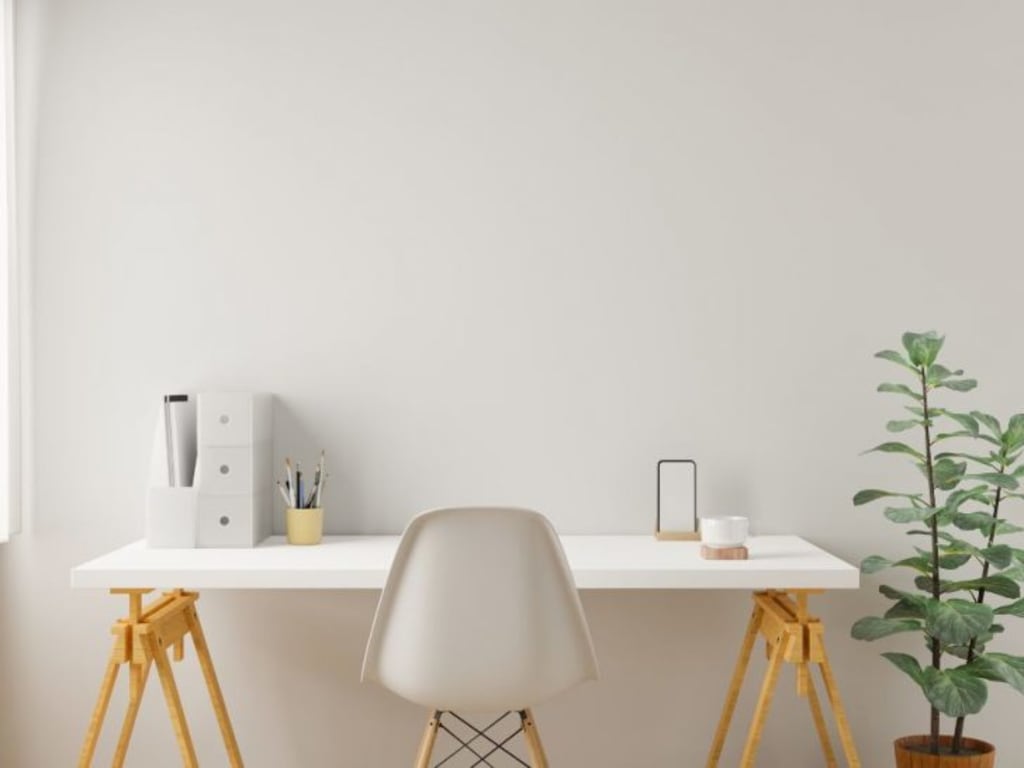The Impact of Minimalism on Productivity: Decluttering for Efficiency
It's time to really decide between your needs and wants.

In a fast-paced and consumer-driven world, the concept of minimalism has gained significant attention. Minimalism is not just about decluttering physical spaces but also encompasses simplifying our lives and prioritizing what truly matters. One area where minimalism can have a profound impact is productivity. By adopting minimalist principles and decluttering our environment, we can create a conducive space for focused work, reduce distractions, and enhance efficiency. In this article, we will explore the impact of minimalism on productivity, provide real-life examples, and offer practical tips for embracing a minimalist mindset. Let's dive in!
Clearing Physical Clutter: A cluttered workspace can lead to mental clutter and hinder productivity. Start by decluttering your physical surroundings, including your desk, drawers, and digital files. Remove unnecessary items, organize essential materials, and create a clean and minimalist workspace. This promotes a sense of calm and allows for better concentration. Jessica, a freelance writer, used to have a cluttered desk with piles of papers and random objects. She decided to declutter her workspace by removing non-essential items, organizing her files digitally, and investing in a minimalist desk organizer. The result was a clean and serene workspace that boosted her productivity and creativity.
Digital Minimalism: Digital clutter can be just as overwhelming as physical clutter. Take time to declutter your digital devices, such as your computer, smartphone, and email inbox. Delete unnecessary files and apps, organize your folders, and unsubscribe from irrelevant newsletters. Adopting a minimalist approach to digital spaces reduces distractions and improves focus. David, a marketing professional, realized that his overflowing email inbox was causing him unnecessary stress and hampering his productivity. He dedicated a few hours to decluttering his inbox, creating filters, and unsubscribing from irrelevant mailing lists. This helped him regain control over his digital space and allowed him to focus on essential tasks.
Streamlining Daily Tasks: Minimalism encourages us to simplify our daily routines and tasks. Identify areas where you can streamline processes and eliminate unnecessary steps. Automate repetitive tasks, create templates for common activities, and establish efficient workflows. By minimizing the time spent on mundane tasks, you free up more time and energy for meaningful work. Alex, a business owner, found himself spending excessive time on administrative tasks like invoicing and scheduling appointments. He decided to streamline his processes by implementing online invoicing software and an automated scheduling system. This not only saved him time but also allowed him to focus on growing his business.
Embracing Essentialism: Essentialism is a key principle of minimalism that emphasizes focusing on the most important tasks and saying no to non-essential commitments. Evaluate your commitments, obligations, and activities to determine what truly aligns with your goals and values. Learn to prioritize and say no to distractions that do not contribute to your productivity. Sarah, a student, used to overload her schedule with numerous extracurricular activities, leaving little time for studying and self-care. Inspired by minimalism, she decided to evaluate her commitments and prioritize her academic goals. She selectively chose activities that aligned with her interests and learning objectives, leading to improved academic performance and overall well-being.
Cultivating Mindfulness: Minimalism and mindfulness go hand in hand. Practicing mindfulness helps us stay present and fully engaged in our tasks, increasing productivity and focus. Embrace mindfulness techniques like meditation, deep breathing exercises, and single-tasking. This allows you to give your undivided attention to the task at hand and achieve better results. Michael, a software developer, noticed that his mind would often wander while working, affecting his productivity. He started incorporating mindfulness breaks into his routine, taking short pauses to practice deep breathing and refocus his attention. This simple practice helped him maintain clarity and work with heightened productivity.
Embracing minimalism can have a transformative effect on productivity. By decluttering our physical and digital spaces, streamlining tasks, adopting essentialism, and cultivating mindfulness, we create an environment conducive to focused work and increased efficiency. Real-life examples demonstrate the positive impact of minimalism on individuals' productivity and overall well-being. So, start by decluttering your physical and digital spaces, simplify your routines, and cultivate a minimalist mindset. Experience the freedom, clarity, and productivity that minimalism can bring to your life.





Comments
There are no comments for this story
Be the first to respond and start the conversation.